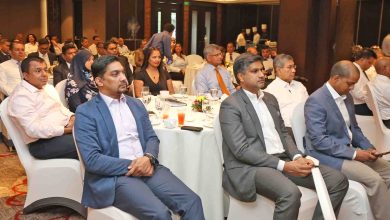UN WOMEN
Ramaaya Salgado, UN Women Sri Lanka’s Country Focal Point added: “Creating conditions for decent work and protecting employees from discrimination are basic human rights. Women’s ability to participate equally in existing labour markets and their ability to meaningfully participate in economic decision-making at all levels is central to realizing women’s rights and gender equality. We hope that the policy directions laid out in this study [outlined below] will serve as a guide for the government, the private sector and non-governmental organizations in taking action to increase women’s participation in the paid workforce”.
During the launch, the study was officially presented to Hon. Dr. Sudarshini Fernandopulle, State Minister of Primary Health Care, Epidemics and COVID Disease Control and Chairperson of the Women Parliamentarians’ Caucus and Kumari Jayasekera, State Secretary of the State Ministry of Women and Child Development, Pre-Schools & Primary Education, School Infrastructure & Education Services. The launch was followed by a panel discussion with key officials from the government, civil society and the private sector.
Highlighting the need to fulfil the promise of the 2030 Agenda, Kumari Jayasekera highlighted that, “As the gravity of this subject is high, we welcome all stakeholders to work in an integrated approach. Increasing the demand for women workers requires a concerted, coordinated effort by government, the private sector, and the non-government sector involving a process of raising awareness, engaging in policy dialogue and formulation, designing strategic interventions, and the implementation and monitoring of these interventions”.
To ensure that women have the choice to work for pay without discrimination or bias, UN Women is calling for better policy, action, and investment in Sri Lanka’s formal enterprises. This includes the formulation of macroeconomic, industrial and trade policies to diversify and upgrade productive structures, promote productive efficiency, and catalyse export-led economic growth, in order to help create jobs for women, especially in small economies like Sri Lanka. Further, in-light of the ongoing pandemic, it is recommended to promote digitization, automation and work-from-home arrangements, which will also help upgrade production processes.
The policy recommendations also highlight the importance of training women in middle-level occupational skills, especially in English language skills. Supportive interventions are also required to train women with disabilities in order to make employers more confident about hiring them. Promoting small and medium-sized enterprises (SMEs), female entrepreneurship, ownership, and management is also highlighted as SMEs generate more demand for women workers.
Lastly, an emphasis on the need to reform labour laws to facilitate flexible working hours and nightwork for women and setting up a social fund for maternity benefits is also recommended. Encouraging family-friendly workplace policies that support the retention of women employees even after marriage will ensure that more women are able to enter the paid workforce.








